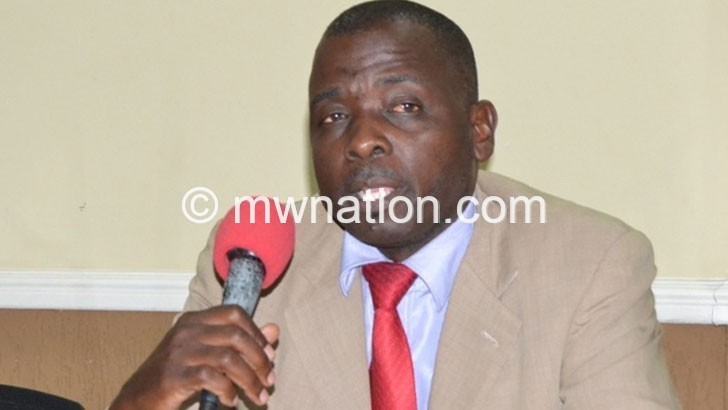Trade unions dismiss public service 10% salary hike cap
Malawi Congress of Trade Unions (MCTU) has dismissed as “unacceptable” the Malawi Government’s cap of 10 percent for salary increments in the public sector in reaction to the 44 percent kwacha devaluation.
But MCTU president Charles Kumchenga in an interview yesterday said the union is open to negotiations to find an amicable and mutually beneficial way forward.
“We have already made our position clear. But we are meeting the Government Negotiating Team on Thursday to hear their proposal. After the meeting, then we can discuss the way forward,” he said in apparent reference to a joint statement issued by Teachers Union of Malawi (TUM) and MCTU.
A circular from Secretary to the Treasury McDonald Mafuta-Mwale to chief executive officers of commercial State-owned Enterprises (SOEs) advises them to limit their salary increment by 10 percent.

Reads part of the circular seen by The Nation: “Furthermore, to cushion against the impact of the recent devaluation, government wishes to advise that a maximum of 10 percent salary increment be considered in the revised budgets for all commercial SOEs effective December 2023.”
In an earlier statement, MCTU, which represents more than 150 000 workers and has 26 affiliates, asked government to raise salaries by 44 percent and adjust the minimum wage by the same margin to cushion people from the effects of the devaluation.
Delivering the 2023/24 Mid-Year Budget Review Statement in Parliament on November 20, Minister of Finance and Economic Affairs Simplex Chithyola Banda announced that the government has increased its allocations to wages and salaries by 9.1 percent from K900.44 billion to K980.49 billion.
The recent statement from Treasury follows a warning from Reserve Bank of Malawi (RBM) against raising the wages exponentially amid concerns that it could push up inflation and raise the production costs of businesses operating in the country.
Reacting to the developments, human and labour rights activist Robert Mkwezalamba said the MCTU is justified to call for a 44 percent increment considering that Malawians are already reeling from inflation which is hovering around 28 percent and the devaluation, which has triggered rises in the price of fuel, fertiliser and electricity, among other commodities.
He said: “Consumers have seen their incomes shrink by roughly 60 percent. There was a 25 percent devaluation last year before the recent one. Salaries have not gone up by that much in the same period so people are in real terms living on less than they used to.”
The activist, however, stressed that it would be difficult for the government to raise salaries by the margins demanded by employees because it might breach the conditionality Capital Hill signed with the International Monetary Fund (IMF) in return for the $175 million Extended Credit Facility that the fund’s board approved on November 15.
Meanwhile, economic analyst and researcher Exley Silumbu said the central bank proposed to limit the increments because it is trying to use monetary policy to control aggregate demand and maintain price stability.
In a telephone interview, he said: “The central bank was expressing concern that wanton upward wage adjustments would lead to entrenched wage-price spiral or spark upward cost-push inflation which may undermine the effectiveness of monetary policy instruments to restrain aggregate demand and thereby frustrating the achievement of the primary objective of price stability.”
RBM spokesperson Mark Lungu declined to comment on the threshold where an increment would be acceptable.
In an e-mailed response, he said: “We would rather not comment further on this issue.”
RBM devalued the kwacha by 44 percent on November 9 2023 in a move that triggered reciprocal price increases for petrol and other goods and services.






One Comment